|
|
|
Luce Faculty Seminar on
Fine Arts, Brain, and Medicine
February-April, 2000
|
|
Do the Fine Arts
bring more than pleasure and entertainment?
Does the practice of the Fine Arts affect your brain?
Could writing an essay or playing music be beneficial to your health?
Is there any link between artistic creativity and mental disorders?
Find some of the
answers in the upcoming Faculty Seminar! |

Lectures
|
|
|
The Luce
Faculty Seminar on "Fine Arts, Brain, and Medicine," will be held in Claremont,
California during the Spring, 2000. The Faculty Seminar is part of our new
intercollegiate, interdisciplinary program in Brain, Mind and Medicine: Cross-Cultural
Perspectives. It is an initiative of Pitzer, Claremont McKenna, and Harvey Mudd Colleges,
funded by The Henry R. Luce Foundation.
|
|
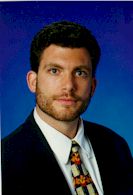
|
JOSHUA M. SMYTH, Ph.D.
Writing Your Wrongs:
The Consequences of Writing About Emotionally Traumatic Events.
Monday, February 21
Within the domains of psychosomatic medicine and health psychology
there are two major treatment approaches that have been found to benefit health:
Relaxation and talk therapies. Basically all forms of talk therapy -- from psychoanalysis
to cognitive/behavioral therapies -- have been shown to reduce psychological distress and
promote both physical and mental well-being. Most therapies include the labeling of
the problem and a discussion of its causes and consequences as part of the therapeutic
process. Dr. Smyth proposes that the act of disclosure itself is a powerfull
therapeutic agent that may account for much of the healing process. "My
research focuses on the effects of asking individuals to write about emotionally traumatic
events. When people put their emotional upheavals into words their physical and
mental health seems to improve markedly. There is something remarkable about their
expressing themselves in words" he said.
Doctor Joshua M. Smyth is Assistant
Professor of Psychology at North Dakota State University. He leads an very active
research program on the beneficial effects of writing for which he received numerous
research grants, honors and awards. Professor Smyth has published over 35
professional papers.
Location: Avery Auditorium, Pitzer College
Time: Public lecture 5:00 - 6:00 PM
Dinner-discussion: 6:30 - 7:30 PM (limited to registered faculty members)
Full text available JAMA
|
|
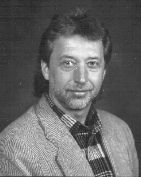
|
MICHAEL H. THAUT, Ph.D.
Rhythmicity and the Brain: Implications
for the Therapy of Movement Disorders and Cognitive Functions.
Monday, March 6
He will present an overview of current research in the
areas of brain function, music, and applications to neurologic rehabilitation. Three areas
will be discussed.
First, the neuroscience of rhythm perception and rhythmic entrainment,
including rhythmic synchronization strategies, evidence for subliminal auditory-motor
interactions, and brain mapping with PET-technology of neural networks during rhythmic
auditory-motor synchronization.
Secondly, he will cover the research applying rhythmic entrainment
models to rehabilitative motor training with patients suffering from stroke, Parkinson's
disease, traumatic brain injury, cerebral palsy, etc. Research data and
computational models showing why auditory rhythm can stabilize and optimize the control of
movement in therapeutic training will be presented. Furthermore, Dr. Thaut will
discuss his efforts to extend research into the neuroscience of music perception, the
areas of cognitive functions, with the goal to examine if music can play a role in
cognitive rehabilitation and training.
Lastly, he will discuss the emergence of the new field of neurologic
music therapy as a research based treatment system for patients with neurological
disorders. Neurological music therapy is based on utilizing the psychological and
neurophysiological mechanisms inherent in music perception and production. Dr. Thaut
will give an overview of the standardized treatment techniques and show how neurologic
music therapy is begining to be implemented in health care.
Dr. Michael H. Thaut is Director of the Center for
Biomedical Research in Music, and Professor in the Department of Music, Theater, and
Dance; Molecular, Cellular, and Integrative Neuroscience Program; and the Department of
Electrical Engineering at Colorado State University.
Location: Pickford Auditorium, Claremont McKenna
College.
Time: Public lecture 5:00 - 6:00 PM
Dinner-discussion: 6:30 - 7:30 PM (limited to registered faculty members)
Abstract available MEDLINE
JAMA Medical News
& Perspectives
|
|
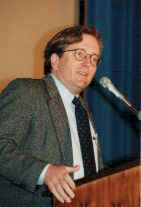
|
JAMES S. CATTERALL, Ph.D.
Learning Through the Arts
From Music to Cognitive Restructuring to Shakespeare.
Monday, March 20
Professor Catterall's
presentation will focus on his studies in learning through the arts -- particularly the
value of general involvement in the arts as well as intensive involvement in instrumental
music and theatre. He will also discuss the related work of colleagues at Harvard,
Stanford, and Columbia University included in a new volume just published "Champions
of Change: The Impact of Learning on the Arts."
Doctor James S. Catterall is Professor of Education in the Graduate
School of Education & Information Studies at UCLA, former Chair of the Faculty, and
former Editor of The School Choice Forum. He has many studies in progress on involvement
in the Arts and learning among children and adolescents. His contributions are numerous
including professional papers, chapters, books, and educational policy analyses.
Location: Avery Auditorium, Pitzer College
Time: Public lecture 5:00 - 6:00 PM
Dinner-discussion: 6:30 - 7:30 PM (limited to registered faculty members)
This book is available free from the President's Committee on the
Arts and Humanities by e-mailing a request and address to: pcah@neh.gov
|
|
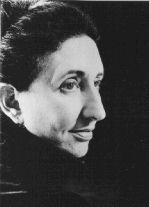
|
MAXINE JUNGE, Ph.D., L.C.S.W., A.T.R.,
H.L.M.
Clinical Aspects of Art in Psychotherapy
Monday, March 27
Dr. Junge will present a series of case studies on different issues
including art in grief work, art as identity consolidation, art in family therapy,
multiple impact brief therapy, and the use of art as healing ritual.
Maxine Borowsky Junge is a Professor and former Chair in the Department
of Marital and Family Therapy and Clinical Art Therapy at Loyola Marymount University in
Los Angeles. She has had a consuming interest in creativity since childhood and is
educated as a painter through graduate studies at Scripps College, Otis Art Institute,
Chouinard Art Institute, Instituto Allende, and UCLA. She has been an art psychotherapist
for 27 years and in 1996 received the highest award given by the American Art Therapy
Association. In the last five years, she has worked with HIV/AIDS patients in a
medical practice. Dr. Junge is author of numerous papers, and two books "Creative
Realities: The Search for Meanings", a study of creativity in visual artists
and writers, and "A History of Art Therapy in the United States."
She has been a speaker and presented workshops in the United States, Mexico, Japan
and Korea.
Location: Avery Auditorium, Pitzer College
Time: Public lecture 5:00 - 6:00 PM
Dinner-discussion: 6:30 - 7:30 PM (limited to registered faculty members)
|
|
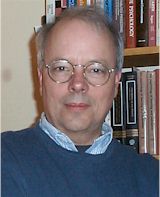
|
LARRY E. ROBERTS, Ph.D.
How Does the Brain Encode its
Dynamic (Musical) Sensory World?
Monday, April 3
Sensory information processing in the human brain is carried out by
densely interconnected networks of neurons that represent features of the sensory input in
the neocortical mantle. These sensory representations can be measured noninvasively
by recording tiny electrical (EEG) and magnetic (MEG) fields which are generated when
neurons are depolarized by their synapses. We are using MEG and EEG to describe the
tonotopic organization of the human auditory cortex and to investigate how the auditory
system reorganizes with experience. Findings from studies of highly skilled
musicians and from laboratory experiments indicate that cortical remodeling extends across
the sensory modalities, to reflect the pattern of sensory input processed by the brain
during skill development. Neural plasticity is a fundamental mechanism of sensory
systems without which we would be unable to carry out even the simplest adaptive act.
Dr. Larry E. Roberts is Professor of Psychology and Associate Member Medical Physics at McMaster University, Canada. He has an
active collaborative research program with the Biomagnetism Center,
Institute of Experimental Audiology at the University of Munster, Germany.
Location: McAlister Auditorium, Galileo Hall, Harvey
Mudd College.
Time: Public lecture 5:00 - 6:00 PM
Dinner-discussion: 6:30 - 7:30 PM (limited to registered faculty members)
Abstract available MEDLINE
|
|
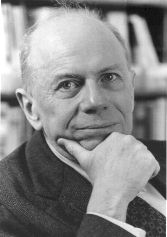
|
JOSEPH J. SCHILDKRAUT, M.D.
Rembrandt at Midlife: Confrontations
With Death
Monday, April 10
In the early 1640s, while Rembrandt (1606-1669) was going
through his midlife period, there were profound changes in his art, his style of life, and
his sense of self. While many art historical issues have been raised by scholars
attempting to understand these changes, of undoubted importance too were the deaths of his
three newborn children in 1636, 1638, and 1640, his mother also in 1640, and his wife in
1642. These changes are dramatically illustrated by comparing his etchings Self-Portrait
Leaning on a Stone Sill of 1639 and Self-Portrait Drawing at a Window of 1648.
The former, a light-filled grandiose composition, shows the artist dressed in
theatrical Renaissance finery, his eyes intense and piercing as he looks with confidence,
possibly even arrogance, into the space ahead. The latter self-portrait, in
contrast, reveals a much older looking artist dressed in every day studio garb; his facial
features have broadened and become heavier, his saddened eyes gaze out from darkened
shadows. In 1642, the year of his wife's death, Rembrandt created one of his darkest
and most impenetrable etchings, St. Jerome in a Dark Chamber. This presentation
will consider the possibility that Rembrandt may have been depressed in 1642 and that the
dark and mysterious St. Jerome in a Dark Chamber is a form of self-portrayal
depicting Rembrandt's mind darkened by depression, the dark chamber into which light
cannot penetrate. Also to be discussed is the relationship of this etching to
Albrecht Dürer's great midlife engravings St. Jerome in His Study and Melencolia
I, both of 1514, the year in which Dürer's mother died.
Dr. Joseph J. Schildkraut is Professor of Psychiatry at Harvard Medical
School and Director of the Neuropsychopharmacology/Psychiatric Chemistry Laboratory at the
Massachusetts Mental Health Center in Boston. Former Editor-in-Chief of the Journal
of Psychiatric Research, Dr. Schildkraut is the author of over 200 scientific
publications. His seminal paper "The Catecholamine Hypothesis of Affective
Disorders," published in 1965, set the agenda for biological research on depression
for the next 25 years. His pioneering research has been recognized with many awards
and prizes. For the past fifteen years, Dr. Schildkraut has been exploring the
inter-relatedness of depression, spirituality and artistic creativity. He is editor
of the book, "Depression and the Spiritual in Modern Art: Homage to Miró,"
published in 1996.
Location: Avery Auditorium, Pitzer College
Time: Public lecture 5:00 - 6:00 PM
Dinner-discussion: 6:30 - 7:30 PM (limited to registered faculty members)
Other related abstract available MEDLINE
|
|
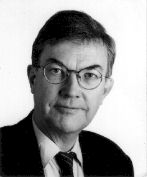
|
LARS OLOV BYGREN, M.D.
Attendance at Fine Arts Events and Your
Health:
An Epidemiological Perspective From Sweden.
Monday, April 17
Cultural activity like attending theatre, reading
books, playing music, etc., is thought to increase resistance to diseases or be the
impetus to start dealing with problems. It could be because it is inspirational for
handling everyday social problems, thus enhancing people's reflection on their life
situation and enabling them to prepare for coming events. More importantly, such
activity provides direct emotional arousal, and it is known that the organism responds
with changes in the nervous system - for example, verbal expression of traumatic
experiences through writing or talking improves physical health, enhances immune function,
and is associated with fewer medical visits. In this presentation, Dr. Bygren will
share with us the results of a 14 years study he realized in Sweden with his
collaborators, investigating the possible influence of cultural stimulation on survival.
Dr. Lars Olov Bygren is head of the Department of Social Medicine at Ume ċ University in Sweden, Editor-in-Chief of the "Scandinavian Journal of
Social Medicine", and Corresponding Editor of "Health Policy".
Location: Pickford Auditorium, Claremont McKenna
College.
Time: Public lecture 5:00 - 6:00 PM
Dinner-discussion: 6:30 - 7:30 PM (limited to registered faculty members)
Full text available 
Further information:
Heather Gillespie
Pitzer College
Telephone: (909) 607-3061
Fax: (909) 621-8481
Email: heather_gillespie@pitzer.edu
Scientific inquiries:
Mario Incayawar, MD, MSc.
Luce Professor in Brain, Mind & Medicine: Cross-Cultural Perspectives
Pitzer, Claremont McKenna, Harvey Mudd Colleges
1050 North Mills Avenue
Claremont, CA 91711-6101
|
 
|
